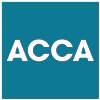Contractors
Please note the goverment has extended IR35 for another year until 5th april 2021 due to the Coronavirus pandemic. Therefore another year to take advantage of existing legislations.
We believe in "contracting through your own limited company". Whether you are an existing contractor or new to the contracting world, we can help you.
Your limited company compared to an Umbrella company:
Umbrella Company - taking your earnings through an umbrella company means you are an employee of that company, where you have very little control of your income. Basically you have the responsibility of submitting regular timesheets and expenses claim forms to the umbrella company regularly. The umbrella will then invoice your end client or Agency for work carried out by you. The umbrella company will then pay you, after deducting their fee, through PAYE.
Some umbrella companies market themselves by saying they have special dispensation schemes approved by the tax office. You have to be aware that HMRC never approves any scheme. It is for the company to ensure any schemes they use are in line with the UK tax laws. For instance all expense claims have to be backed up by appropriate receipts and must be incurred wholly and exclusive for the purpose of carrying on your employment.
Through an umbrella company you will take home approximately 60-65%. This may vary slightly depending on your daily rate, mainly.
Your limited company - It is not unrealistic to take home 80% using your own limited company (your net take home will depend on your personal circumstances and tax affairs).
Your Limited company must be a genuine one and more importantly your contract has to be reviewed ensuring you are not caught within the rules of IR35. You cannot find any more detailed information on IR35 anywhere other than those published on HMRC's website. We do not and will not publish anything that will make you believe we can "get around it!". Depending on how your contract is drawn, you are either within or outside the remit of IR35. However your limited company route that we advise you on is perfectly legal and most tax efficient.
Follow the link below if you would like to know more on IR35.
http://www.hmrc.gov.uk/ir35/index.htm
Your step by step guide to operating your own limited company is explained below:
Step 1 - Form your Limited Company, if you don't have one already. We also provide a comprehensive company formation service and we will be happy to incorporate your new limited company at cost only. Once we have all the required information we aim to send your company's incorporation documents within 24 hours.
As part of the company formation service we advise you on various aspects to consider, such as making your spouse/partner as a shareholder, etc..
Step 2 - Opening a business bank account is essential since you would need this as soon as possible; otherwise your client won't be able to pay you! We can also assist you in doing so as we have good relations with some high street banks locally.
Step 3 - Registering your company for VAT is crucial as it seems all Agents or end clients insist on seeing your VAT Certificate before settling your first invoice. Once the company is incorporated we advise you to register for VAT and we normally do this as part of the service. We also advise contractors to apply for the "Flat Rate VAT Scheme". In brief this Scheme allows you to charge your customer 20% VAT, but you only pay a smaller proportion to the VAT office. In fact you actually generate extra income from this scheme which is more than enough to pay for your accountancy fees!
It is important to note you are not able to claim for VAT on expenses while on the Flat Rate Scheme.
The Flat Rate Scheme is not very complicated to understand and as usual the best place to find more about it is on HMRC's website as follows:
http://www.hmrc.gov.uk/vat/start/schemes/flat-rate.htm
Let's give you an example (for those who are new to this):
Using the tax rates for 2013/2014
Your daily rate is £400. Assuming there are 250 working days in one year, your annual sales invoice will be £100,000 plus VAT of £20,000. Therefore your customer will pay you £120,000. However for IT Contractors, the flat rate applicable to them is 14.5% (there is a 1% discount in the first year) on the amount you receive (£120,000), that is, the VAT inclusive amount. Hence in year 1 you would pay HMRC only £16,200 (£17,400 in the second and subsequent years). As you can see you have automatically generated an extra £3,800 in the first year and £2,600 in future years.
Step 4 - You will have to register the company for PAYE so you can pay yourself a wage. Again we will advise you on this aspect too, in particular whether you can add your spouse as an employee of the company and how you can legitimately do so. We also take care of this task for you. Once registered for PAYE there are strict filing requirements which we will look after for you. More importantly information has to be sent to HMRC online and in "real time" each time you pay yourself through PAYE (whether weekly of monthly). For information about operating PAYE in real time please follow the following link:
http://www.hmrc.gov.uk/payerti/
Step 5 - You can now start your contracting work and leave the rest to us and we promise to keep it simple!
Once you start contracting you will obviously have lots of questions in your mind and from our experience, the most common question all of you have is "What expenses can I claim for?"
You can claim for all relevant expenses as long they are incurred "wholly, exclusively and necessarily" for the purpose of carrying on your business. This is a very broad definition, but for guidance purpose only here is a list of expenses you may be able to claim:
- Wages - once the company is registered to operate a PAYE Scheme, we will process your wages, together with that of your spouse (if applicable) and this will be a minimum amount whereby there is very little tax and National Insurance liability. For example you may wish to withdraw £1,000 each month net as your wages and a smaller amount for the spouse (if applicable).
- Rent - we understand most of you use a room at home for your administrative work, etc and you are allowed to charge the company a small amount of rent, as long the amount is reasonable and can be justified. It's safer to have an agreement in place between yourself and the company, and we can provide you with such a template.
- Travel expenses - these cover tube, trains, bus, cabs, overseas travel, hotel costs, mileage for use of your personal vehicle (at a maximum rate of 45p per miles for the first 10,000 miles and 25p thereafter), subsistence, etc..
- Computers - Hardware and software costs
- Books and training courses
- Professional body Membership fees
- Professional Indemnity Insurance costs
- Mobile phone bills (the contract has to be in the company's name)
- Printing, postage and stationery costs
- Office furniture costs
- Relocation expenses
- Staff welfare/party, teas, coffees, etc
The above information should be sufficient for you to have an idea of where you are about to head off and we take it from there for you.
We will be happy to answer any question you may have. We do not charge for the consultation and we don't restrict our free consultation to just one, that is you can call us twice or even three times if you have more questions as we understand this might all be "alien" to you when you first start contracting.


 Call us on +44 1273 758 113
Call us on +44 1273 758 113



